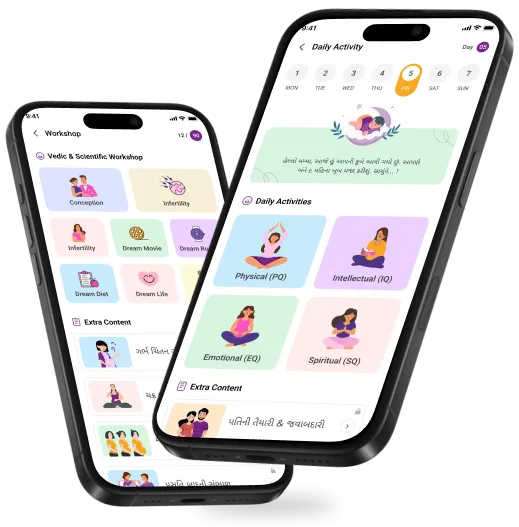Hey there, expecting moms! Are you curious about how vitamin B12 can work wonders during your pregnancy journey? Let's dive into the world of this essential nutrient and discover vitamin B12 benefits for you and your little one.
Imagine this: You're on a magical journey called pregnancy, where every step you take shapes the future of your little one. In this enchanting adventure, there's a special superhero by your side – Vitamin B12!
What is Vitamin B12?
Vitamin B12 is a super important vitamin that helps our bodies make red blood cells and keeps our nervous system healthy. It's like a superhero that ensures everything runs smoothly inside our body! Vitamin B12 is like a secret potion that your body needs to stay healthy and strong. It's a tiny but mighty nutrient that plays a big role in keeping you and your baby in shape during pregnancy.
What is importance of Vitamin B12 during Pregnancy?
When you're pregnant, your body needs extra Vitamin B12 to support your baby's growth and development. This vitamin plays a key role in forming your baby's brain and nervous system, making it a must-have for a healthy pregnancy.
How can Vitamin B12 benefit you and your baby?
- Boosts energy levels: Pregnancy can be tiring, but Vitamin B12 helps fight fatigue and keeps you feeling energized.
- Supports baby's brain development: Vitamin B12 is essential for your baby's brain growth, ensuring they have a strong start in life.
- Prevents birth defects: By taking enough Vitamin B12, you can reduce the risk of certain birth defects and ensure a smooth pregnancy journey.
Where can you find Vitamin B12?
You can get Vitamin B12 from various food sources like meat, fish, eggs, and dairy products. If you're a vegetarian or vegan, you can opt for fortified cereals, Mung bean sprouts, plant-based milk, or vitamin B12 supplements to meet your Vitamin B12 needs and Vitamin B12 absorption.
How much Vitamin B12 do you need during pregnancy?
Pregnant women should aim for around 2.6 micrograms of Vitamin B12 per day to support their health and their baby's development. It's always best to consult your healthcare provider to determine the right dosage for you.
Causes Of Vitamin B12 Deficiency
Vitamin B12 deficiency can happen for a few different reasons. Let's break it down in simple terms:
- Not Enough in Your Diet: One common cause is not eating enough foods that contain Vitamin B12. This vitamin is mainly found in animal products like meat, fish, eggs, and dairy or living vegetables like sprouts. So, if you don't eat these foods regularly, you might not be getting enough Vitamin B12.
- Digestive Issues: Sometimes, even if you eat enough Vitamin B12, your body might have trouble absorbing it. This can happen if you have certain digestive conditions that affect how well your body takes in nutrients from food.
- Pernicious Anemia: This is a condition where your body can't make enough of a protein called intrinsic factor, which is needed to absorb Vitamin B12. Without enough intrinsic factor, your body can't use the Vitamin B12 you get from food.
- Surgery or Medications: Certain surgeries or medications can also interfere with your body's ability to absorb Vitamin B12. For example, if you've had weight loss surgery or take certain medications for a long time, you might beat risk for Vitamin B12 deficiency.
- Age: As we get older, our bodies may have a harder time absorbing Vitamin B12.This is why older adults are more at risk for Vitamin B12 deficiency.
It's important to be aware of these causes so you can take steps to prevent Vitamin B12 deficiency. If you think you might be at risk or are experiencing symptoms of deficiency, it's a good idea to talk to your healthcare provider. They can help you figure out the best way to make sure you're getting enough Vitamin B12 to stay healthy.
{{cool-component}}
Vitamin B12 Deficiency Symptoms
Our bodies don't make Vitamin B12 on their own. So, it's important to get enough of it in our diet. Vitamin B12 protects our nervous system and gives us energy by helping our red blood cells divide. That's why it's crucial to include foods rich in Vitamin B12 in your diet, especially during pregnancy. Vitamin B12 deficiency causes various health issues, not just physical but mental too.
Symptoms of Vitamin B12 deficiency include gas, stomach problems, anemia, digestive issues, weakness, lack of appetite, and constipation. One common sign of low vitamin B12 levelsis feeling tired and weak. This is because Vitamin B12 helps our bodies make red blood cells, which carry oxygen around our bodies. Without enough Vitamin B12, our red blood cells can't do their job properly, leading to fatigue.
Another symptom of Vitamin B12 deficiency is tingling or numbness in the hands and feet. This happens because Vitamin B12 is important for maintaining healthy nerves. When we don't have enough Vitamin B12, our nerves can become damaged, causing these strange sensations.
Vitamin B12 deficiency can also affect our memory and mood. Some people with this deficiency may experience memory problems or feel more irritable or depressed than usual. This is because Vitamin B12 plays a role in keeping our brains healthy and functioning properly. In severe cases, Vitamin B12 deficiency can lead to serious complications like nerve damage or anemia.
Remember, if you're experiencing any of these symptoms, it's important to talk to a healthcare provider. If someone is at risk of deficiency, they may need to take Vitamin B12 supplements to stay healthy.
The amount of Vitamin B12 needed varies with age
- 0-6 months: 0.4 mcg
- 7-12 months: 0.5 mcg
- 1-3 years: 0.9 mcg
- 4-8 years: 1.2 mcg
- 9-13 years: 1.8 mcg
- 14 years and older: 2.4 mcg.
(During pregnancy the recommended amount of Vitamin B12 is 2.6 mcg.)
To meet your Vitamin B12 needs, include natural sources of vitamin B12 like milk, yogurt, and paneer in your diet. These foods are rich sources of Vitamin B12. Vitamin B12-rich foods for pregnant women are sprouted green gram, a good source of Vitamin B12. Eat it raw in the morning, away from direct sunlight, to preserve its Vitamin B12 content.
Vitamin B12 is water-soluble. Vitamin B12 supplementation during pregnancy is very important. Here are some Vitamin B12 absorption tips. If someone has a severe deficiency, doctors may recommend a course of injections based on their needs. Many people worry that vitamin B12 injections lead to weight gain, but the truth is that the right amount of Vitamin B12 helps improve digestion.
Starting treatment on time is important as delaying it can lead to increased side effects. After injections, medication may be needed for a few months to maintain Vitamin B12 levels in the body. Prenatal nutrition with vitamin B12 is necessary for the baby.
Remember, Vitamin B12 is essential for your health and for Vitamin B12 for fertility planning, so make sure to include it in your diet and follow your doctor's advice for any deficiencies.
{{cool-component-1}}
Conclusion
Vitamin B12 is a true ‘Pregnancy Powerhouse’ that can benefit both you and your baby in numerous ways. By ensuring you get enough of this nutrient, you're setting the stage for a healthy and happy pregnancy journey. Remember, a little Vitamin B12 helps in your baby's growth. Stay healthy, stay happy, and let Vitamin B12 be your pregnancy friend!
That's all for now, lovely moms-to-be! Wishing you a beautiful and Vitamin B12-filled pregnancy ahead!! Enjoy the journey and let Vitamin B12 light up your path to a healthy and happy pregnancy!
Disclaimer: This blog is correct as per the writer's knowledge. This is not medical guidance. Follow as you are responsible for.












.webp)

.webp)





